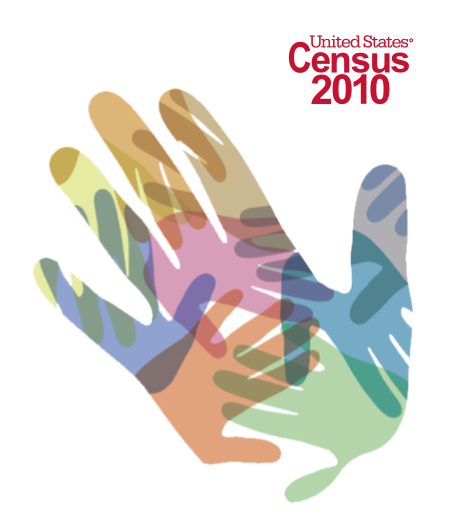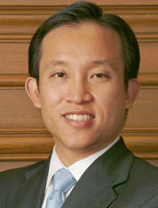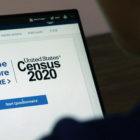As the U.S. Census Bureau gears up for the 2010 count, it has made a significant change in how it engages immigrants — this is causing some city officials concern that San Francisco may lose out on hundreds of millions of dollars in federal funding, which in turn may lead to distorted electoral representation.
This year, the bureau has chosen to send its first direct communication to households in English only. Before the 2000 Census, the bureau distributed this survey information with an option to request instructions for filing the questionnaire form in multiple languages, including Spanish, Chinese, Korean, Vietnamese and Tagalog.
Current Census Bureau data indicates that more than one-third of San Francisco’s residents — some 270,000 people — are immigrants, with 61 percent of these immigrants originating from Asian countries and another 21 percent from Latin America.
An inaccurate Census count could deprive San Francisco of millions of dollars in government funding — with estimated losses as high as $30 million annually for an undercount of more than 100,000 people in the 2000 Census — according to a 2007 report by national nonprofit demographic expert Social Compact.
A miscount could “disproportionately harm San Francisco and other areas with large immigrant communities,” according to a letter to the Census Bureau signed by City Attorney Dennis Herrera and Board of Supervisors President David Chiu.
“It has a tremendously disproportionate impact on diverse cities like San Francisco with large numbers of Asian Americans,” Chiu said at a press conference earlier this week.
“This is something that is incredibly important for our city during these tough budget times,” Chiu said, referring to the July scramble to patch a more than $400 million deficit in the $6.6 billion city budget. “We cannot afford to undercount.”
According to a representative from the Census Bureau’s Public Information Office, the multilingual request option “was a nice concept, but it didn’t work” because mailed responses were coming in after questionnaires had already been mailed.
Because the census occurs once every 10 years, the data, if inaccurate, will have a lasting effect on funding and electoral representation at the federal, state and local levels. This, in turn, may hinder San Francisco’s ability to provide vital services to its residents, often to the same communities that were misrepresented by the census, said Vincent Pan, executive director of Chinese for Affirmative Action.
“You end up short-changing some of the communities that need [these resources] the most,” he said.
Census questionnaires will be mailed or delivered to every household in the United States in March 2010. The questions will ask for information that is accurate as of April 1, 2010.
With nearly half of all San Franciscans speaking a language other than English at home, and one-fifth of city residents reporting on the last census that they do not speak English very well, the change in the Census Bureau letter raises the question of equal access to information.
Pan alerted Chiu to the change in the bureau’s communications and alleged the bureau was doing serious harm.
“The census is one of the oldest ongoing forms of mass institutional discrimination,” Pan said at the Tuesday press conference. “We know that the groups that tend to be undercounted are minorities, are immigrants, are limited-English proficient communities.”
Chiu said that given the diversity of San Francisco, he was concerned what it means nationwide “if we can’t get it right here.”
Despite what the bureau calls “a far more robust and comprehensive language program,” which includes advertising in mainstream and ethnic media in 28 languages and partnering with community based groups, these efforts will completely miss hard-to-reach populations, said Adrienne Pon, executive director for the city’s immigrant affairs office.
People living on the streets and families packed into single-occupancy residences are likely to be overlooked because they don’t respond to these kinds of marketing campaigns, she said.
Moreover, the bureau is leaning on local organizations to fill in the gaps in their campaign.
“The partnership program relies heavily on the community-based organizations but doesn’t provide resources,” Pon said.
In previous censuses, the state was able to provide funding and grants to local organizations to supplement the bureau’s efforts, but Pon said San Francisco won’t be seeing that support in 2010.
“After this year’s budget shortfalls and abysmal economic forecast, a lot of [the community groups] are struggling to survive as organizations, and they can’t devote a lot of people, even though in the long run this is going to be helpful for them,” she said.
The city attorney’s office also expressed concern over the impact of how census workers will be perceived by immigrant communities. Without “equal information,” Herrera said these groups might otherwise become disenfranchised and unwilling to share information needed for the survey.
“It comes down to citizenship,” Herrera said, “to people being included and part of the process.” Herrera said that “the more that you can be inclusive and culturally sensitive, the less suspicion there’s going to be of the census workers and of the census in general.”
Should the bureau fail to provide an advance letter with multilingual options, Herrera said that the city is prepared to “pursue all legal remedies if we need to.”
If the city takes legal action, it wouldn’t be the first time that San Francisco challenged the census count — in 1990, the city unsuccessfully sued as part of other jurisdictions.
San Francisco is the nation’s 12th-largest city with a population of just more than 800,000, according to the 2000 U.S. Census.
While there is no word of other Bay Area cities expressing such concern, Herrera said the city has a “history of being aggressive when it comes to protecting our legal rights.”
“You don’t want to miss any opportunity to participate in the census,” Herrera said. “You don’t want to be playing catch up.”











